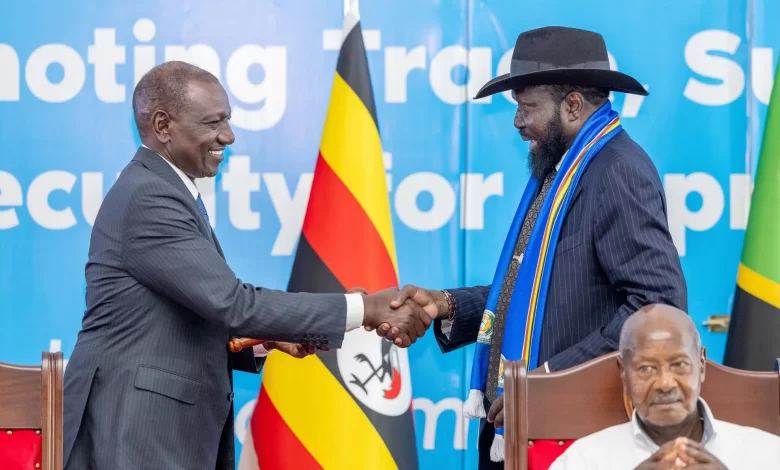President William Ruto has assumed the role of chairperson of the East Africa Community heads of state summit, taking over from his South Sudan counterpart Salva Kiir on Saturday, November 30. This handover occurred at the 24th Ordinary Summit of the EAC Heads of State, which brought together the heads of state from the seven member countries, namely Kenya, Uganda, Tanzania, South Sudan, Rwanda, Burundi, and Somalia.
In his acceptance speech, President Ruto extended gratitude to his predecessor for his visionary leadership and expressed his appreciation for being entrusted with the chairmanship of the East Africa Community. He briefly highlighted the areas he intends to focus on during his tenure, citing good governance, security, political stability, shared prosperity, and improved quality of life for the people of East Africa as his key priorities.
During his term, President Ruto plans to focus on augmenting the quality of life for the people of East Africa. He intends to concentrate on several areas, including improving the region’s competitiveness, encouraging value-added production, increasing intra-regional trade, and driving investments. These pillars are crucial for transforming the regional economies, creating employment opportunities, and ensuring sustainable development across East Africa.
President Ruto also emphasized the significance of establishing peace, security, and good governance as the foundation for the stability of the East Africa Community. To achieve these objectives, the president underscored the need to strengthen regional mechanisms that support the sovereignty and collective security of member states, while also promoting inclusive governance that reflects the aspirations of the people.
The president also touched on the expansion of the East Africa Community, which now includes South Sudan, the Democratic Republic of Congo, and the Federal Republic of Somalia. This expansion, according to President Ruto, reflects the growing appeal of the EAC as a model of integration that offers immense opportunities for the region once the available market is fully tapped.
President Ruto also acknowledged the recognition of Kiswahili and French alongside English as official languages of the East Africa Community. He noted that Kiswahili, being a unifying African language, embodies the region’s shared cultural heritage. Furthermore, the president emphasized the importance of unity as the community navigates through the current and future challenges that lie ahead.
In addition to this, President Ruto highlighted the significance of trade in driving economic growth and regional integration. He expressed Kenya’s appreciation for the continued support from the EAC Heads of State in navigating complex trade matters.
The president concluded by reiterating the need for the member states to remain steadfast and united as they navigate through the ongoing challenges and hurdles. He urged the member states to recognize each obstacle as an opportunity to innovate, collaborate, and drive progress towards realizing the founding vision of the East Africa Community and securing a brighter future for the people of East Africa.
The chairmanship of the East Africa Community heads of state summit is rotational, a principle that the member states have endorsed to avoid concentrating power in the hands of a single member state. This principle promotes fairness, equality, and regional integration among the member states.
The heads of state summit is the highest decision-making organ of the East Africa Community, and as such, its resolutions and decisions have a significant impact on the region. This emphasizes the importance of the chairperson’s role in guiding the discussions and decisions made by the summit.
The EAC has come a long way since its inception, and under the new chairperson, the region can look forward to significant progress in the areas of economic integration, regional security, and the overall well-being of its citizens. As the new chairperson settles into his new role, there are high expectations from the member states to advance the region’s development agenda.
The acceptance speech by President Ruto sent a clear message that the East Africa Community is on the right track towards achieving its development goals. His commitment to the growth and development of the region is unwavering, and his enthusiasm was evident as he underscored the importance of unity, good governance, and inclusive growth.
As President Ruto takes the reins of the East Africa Community, the people of East Africa can look forward to a renewed sense of hope and optimism. His vision for the region, which he shared with the member states, is inclusive, progressive, and focused on developing the economic potential of the region.



